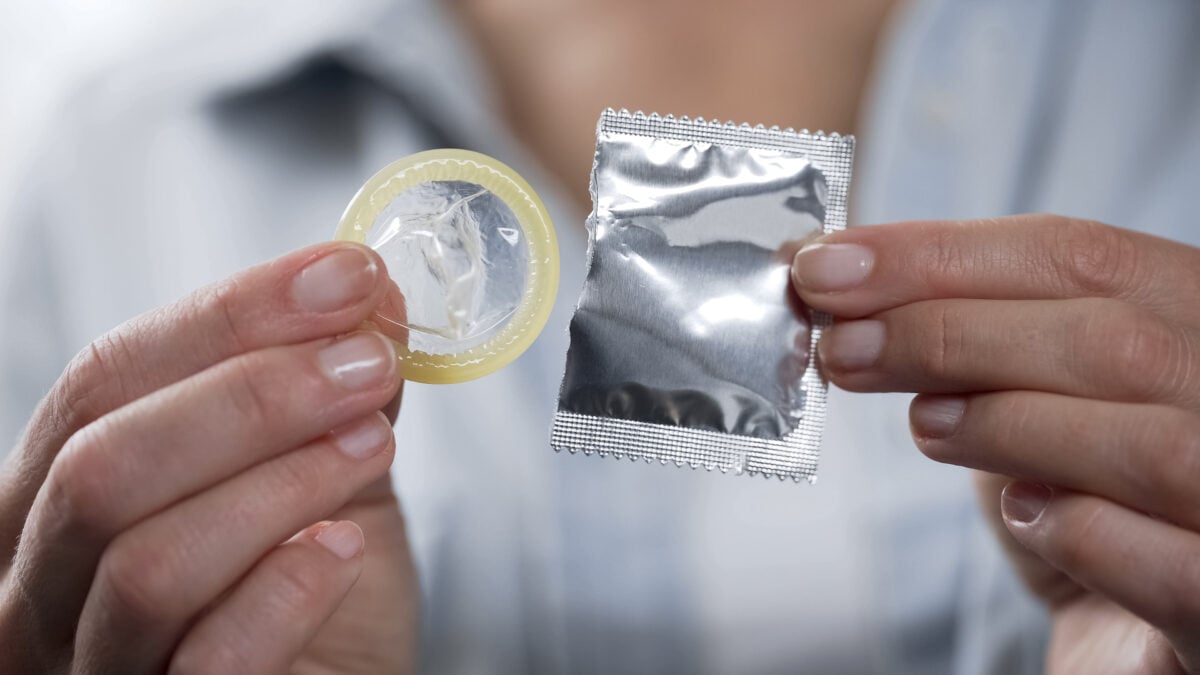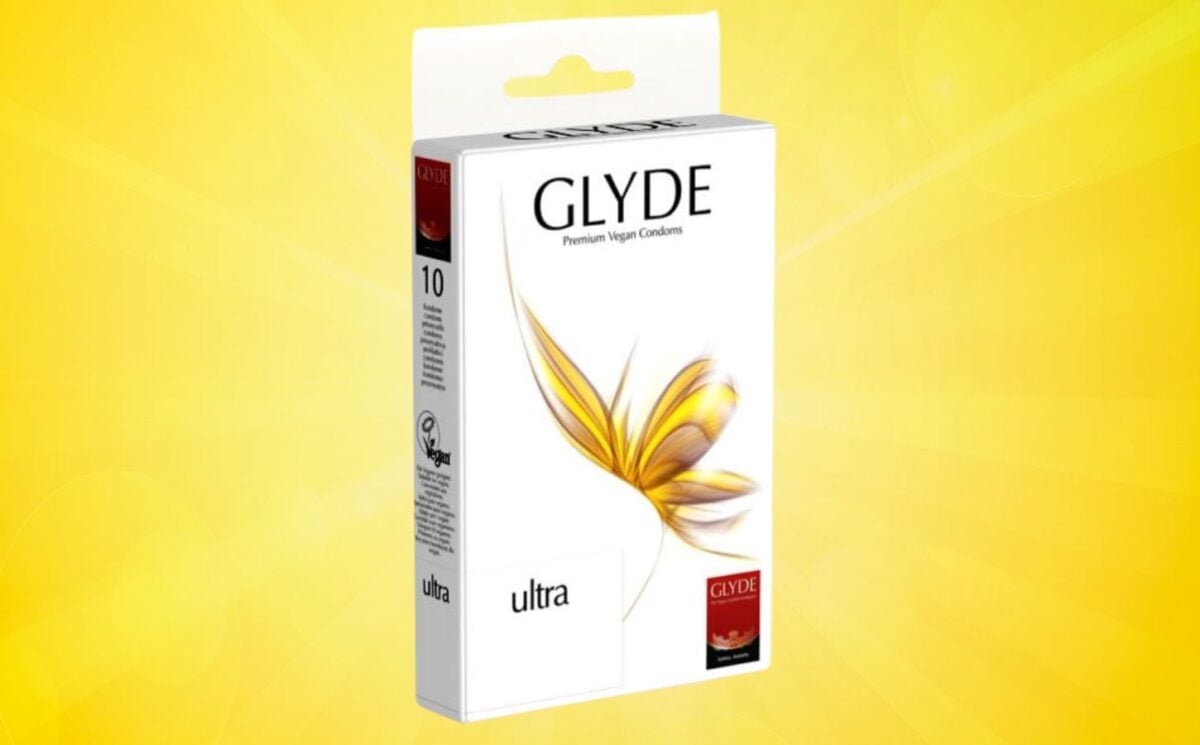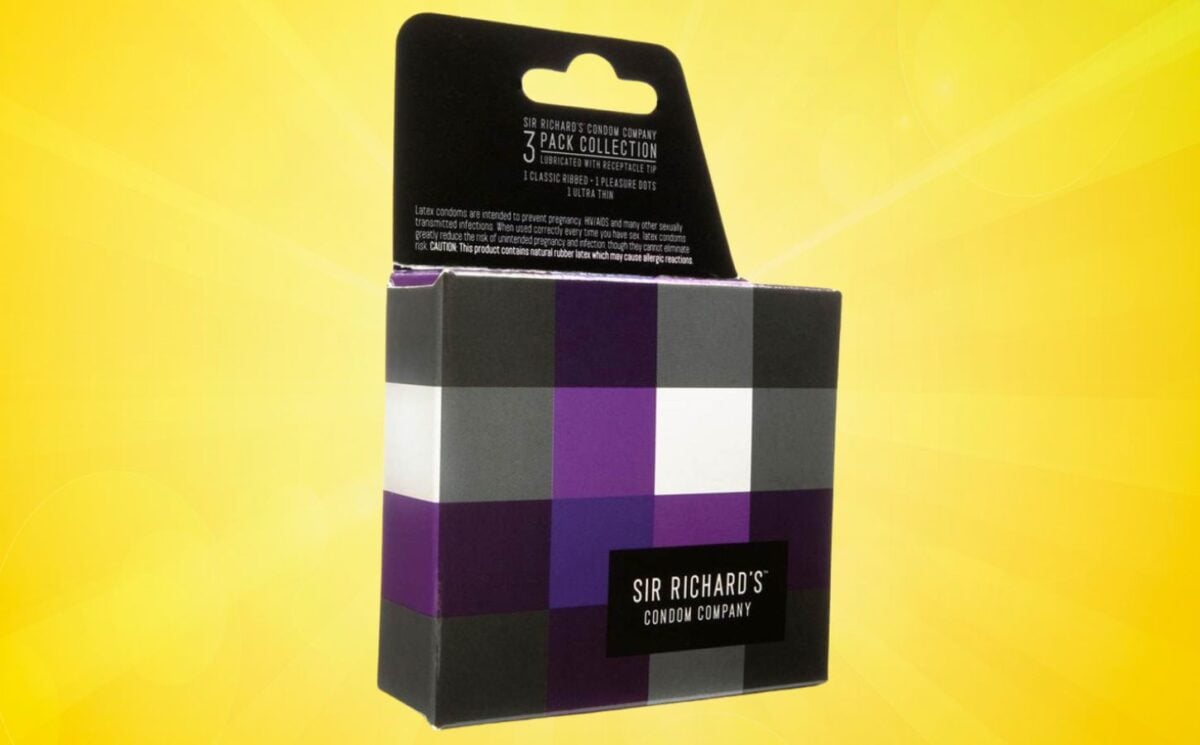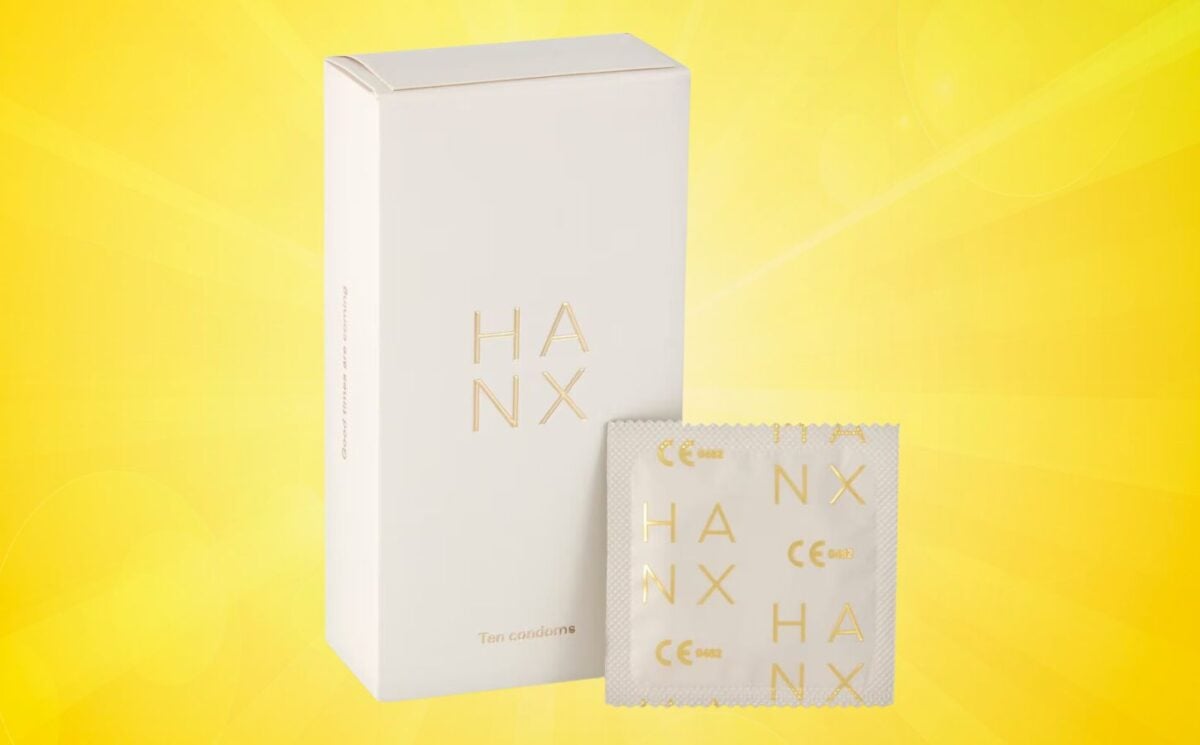The answer to “are condoms vegan?” is complicated. On the one hand, their most common key material – latex – is a type of rubber and naturally plant-based. But a number of non-vegan condom brands use animal ingredients in their products. This means that vegan condoms aren’t as mainstream as you might think.
Read more: Are Almonds Really Unethical? The Truth About Their Bad Rep
Many people wrongly believe that veganism is just a diet. But it’s actually a movement against animal exploitation. To the best of their ability, people following the vegan lifestyle abstain from causing harm to animals. This means they don’t buy wool, fur, leather, or use any products at all that come from animal exploitation. And condoms often come under this bracket.
It’s worth noting that the definition of veganism, as outlined by The Vegan Society, is avoiding animal cruelty “as far as is possible and practicable.” While many vegans will be able to seek out vegan condom brands, these may not be accessible at all times, and you should always practice safe sex. Anything that’s vital for health, wellbeing, and general life – as condoms often are – can be considered acceptable for vegans to use, regardless of if they contain animal products or have been tested on animals. (And please don’t panic if you’ve used non-vegan condoms without realizing, going vegan is a learning curve for everyone, and many people have no idea that some condoms aren’t suitable for vegans).
Here’s everything you need to know about why condoms aren’t vegan, and where to find vegan-friendly brands.
Jump to section:
- Why aren’t condoms vegan?
- The cruelty of condom ingredients
- Condoms and animal testing
- The environmental impact of condoms
- Vegan condom brands
Why aren’t condoms vegan?

Condoms often contain animal-derived ingredients, making them not vegan-friendly. The most widely used animal ingredient in condoms is casein, which is a protein found in milk. Casein is used by some brands to make latex smoother and more comfortable for use. Major condom brand Durex uses casein in all its latex condoms, though its Real Feel and Latex Free products do not use this ingredient.
Another ingredient that some condoms brands use (though less commonly) is lamb intestine, which is used to create natural membrane condoms, known as “lambskin” condoms. Lambskin is thought to be the material that the first ever condoms were made from, with evidence of its use dating as far back as the 1600s.
Lambskin condoms are often used by people with latex allergies and help protect against pregnancy, though they are less effective at protecting against sexually transmitted diseases (STIs). This is because, while the material is tight enough to stop sperm entering the female reproductive system, they still allow in fluid that can spread diseases like HIV and chlamydia.
Read more: ‘Cowspiracy’ Co-Director Announces New Film: ‘How To Make Drugs’
The cruelty of condom ingredients
As some condoms use casein and lambskin, buying non-vegan condoms supports industries of animal cruelty and exploitation.
Casein is a product of the dairy industry. Globally, there more than 270 million cows used for dairy production. While many people view the dairy industry through rose tinted glasses, due in part to the industry itself portraying milk as a wholesome product, multiple investigations have shown that dairy farms are rife with abuse.
In order to produce milk, cows must first give birth to a baby. The baby is taken away from their mother soon after birth so that humans can take and sell the milk. If the calf is female, she will generally be raised for dairy herself. If the calf is male, he may either be shot, sold for veal, or raised for beef. Mother cows will often bellow for their baby for days after they’re taken. So-called “dairy cows” often suffer from conditions like mastitis (an udder inflammation) and lameness. This is due to the fact they have been selectively bred to produce an unnatural amount of milk, as well as the fact they’re forced to stand for long periods while being milked. When her milk dries up, she will be taken to the slaughterhouse.
Lamb intestine is a product of the sheep farming industry. Lambs will be slaughtered between the ages of 10 weeks and six months of age. They will often be transported long distances in trucks, and being separated from their mothers is hugely distressing for them. They are theoretically stunned before being killed, but this is often done improperly. As a result, they often regain consciousness before having their throats cut.
Condoms and animal testing
Another issue to consider when buying condoms is that many are tested on animals. Condoms are considered a medical device in most countries, meaning many governments require them to be tested on animals. Rabbits and horses are reportedly used in condom testing. Condoms are tested for their strength and elasticity, as well as potential allergic reactions in humans.
The environmental impact of condoms
As well as supporting exploiting animals, some condoms also have a significant environmental impact that often goes unnoticed.
Latex is derived from rubber tree sap, a natural material. However, the process of converting raw rubber into latex involves chemicals, some of which can be harmful to the environment. In addition to the latex itself, the production process can generate waste and pollution, typical of many manufacturing processes. Some non-latex condoms are also synthetic materials like polyurethane, which are derived from fossil fuels and contribute to carbon emissions and plastic pollution.
The disposal of condoms also presents environmental challenges. Latex condoms are biodegradable, but the process can take years and is slowed significantly in anaerobic conditions, such as those found in landfills. The presence of other materials in condoms, such as lubricants and spermicides, can further delay decomposition and add chemicals to the environment. Non-latex condoms, which are often not biodegradable, can persist in the environment even longer, adding to the accumulation of non-degradable waste. This situation is exacerbated by improper disposal methods, where condoms can end up in natural settings, such as oceans or rivers, harming wildlife and ecosystems.
There are some efforts within the industry to mitigate these environmental impacts. A few companies have begun producing condoms using sustainable practices, such as using latex from forests that are managed responsibly or incorporating more eco-friendly chemicals in the manufacturing process. There are also initiatives to develop biodegradable alternatives to both latex and synthetic materials, aiming to reduce the longevity of disposed condoms in the environment.
Vegan condom brands
There are a number of vegan condom brands that don’t use animal ingredients. Details of vegan condoms you can buy can be found below.
Glyde

Glyde is known for being the first certified ethical, vegan, and fair trade condom brand in the world. It’s been producing vegan condoms since the early 1990s.
Glyde condoms are made from natural rubber latex sourced from worker-owned and operated producers with fair trade and labor practices. The company ensures that its products are free from animal testing and animal byproducts.
Sir Richard’s

These condoms are made from 100 percent natural latex and are free from animal products, parabens, spermicide, and petrochemicals. Sir Richard’s avoids all animal products and animal testing, ensuring its products are vegan. Sir Richard’s also donates condoms to developing countries. The company sent 500,000 to Haiti back in 2012, for example.
Hanx

Hanx condoms are natural, fair trade, and vegan. They are designed to be ultra-thin for sensitivity and are free from all harmful chemicals. Hanx condoms are certified vegan by The Vegan Society, and the brand confirmed that they are not tested on animals “at any point in the supply chain.”
Read more: Deborah Meaden Raises Concerns Over Goat Milk Skincare Range On Dragons Den






